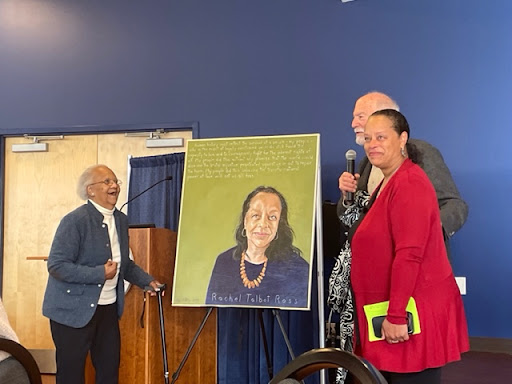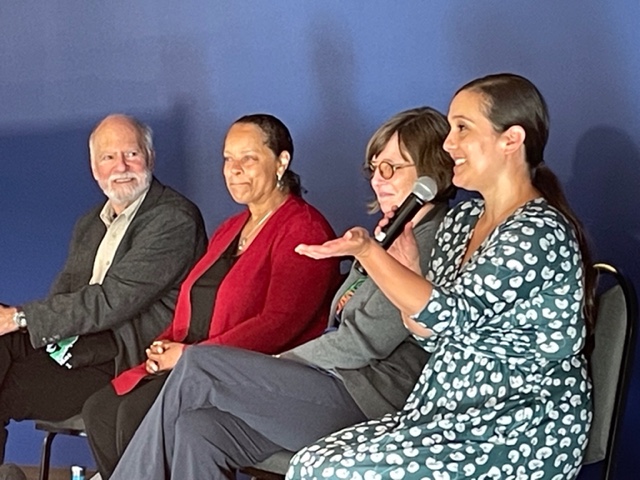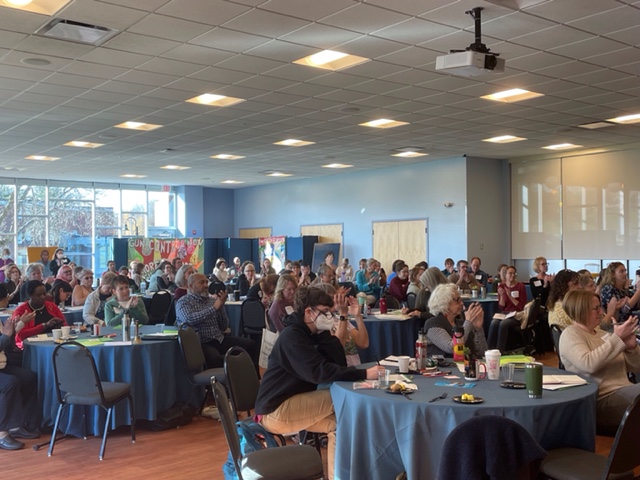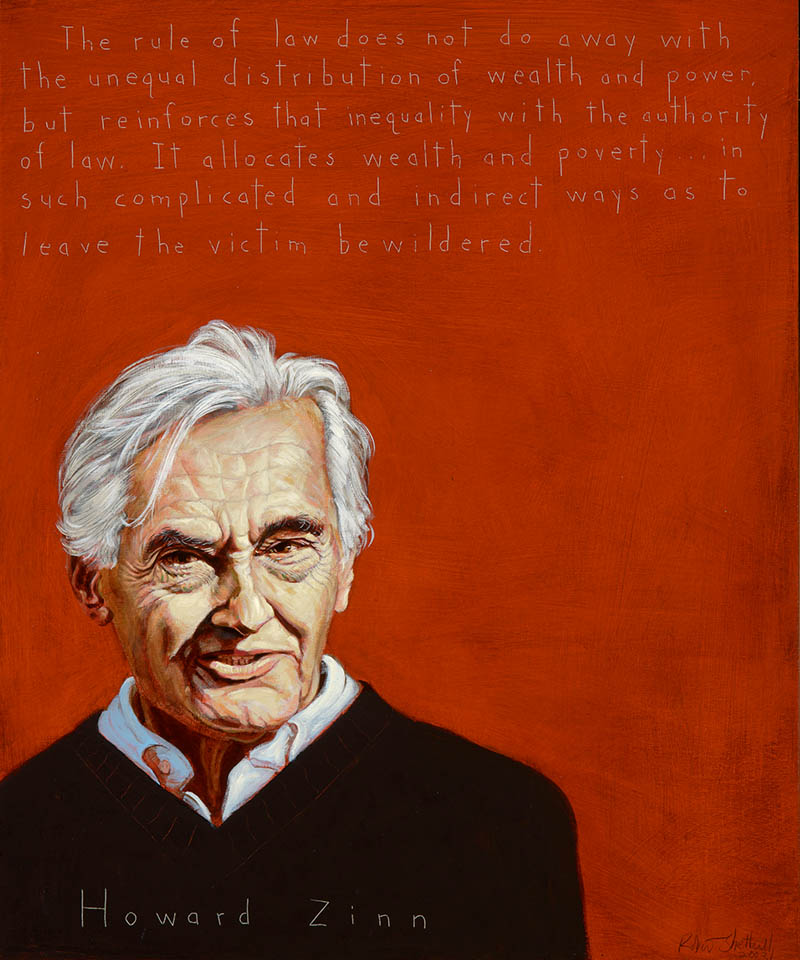What's New
AWTT “Truth, Hope, and Creativity” Conference Reprise
Powerful! Well done and inspiring!
It allowed me to access materials to use in class.
Great information and ideas on how to do the Samantha Smith Challenge.

These are just a few of the many positive comments shared by over ninety Maine educators who attended the Americans Who Tell the Truth’s conference, Truth, Hope, and Creativity: How the Arts Can Deepen Any Curriculum at Thomas College in Waterville, ME, on Saturday, Nov. 5. Before the conference opened participants were able to watch Truth Tellers, Richard Kane’s documentary of Robert Shetterly’s art and activism and a lesson in what it means to be a citizen of democracy.
AWTT artist and founder Robert Shetterly opened the conference with the unveiling of his portrait of Rachel Talbot Ross, a ninth-generation Mainer who has dedicated her career to public service and social justice and currently serves as assistant majority leader in the Maine House. Ross is the first black woman elected to the Maine Legislature and to legislative leadership.

Following the unveiling, a panel of Americans Who Tell the Truth portrait subjects – Maulian Dana, Florence Reed, Rachel Talbot Ross – and Robert Shetterly offered ideas about teaching the truth of our history to students in today’s schools. Moderator Doug Rawlings from Maine Veterans for Peace also asked them to reflect on how to address the intersectionality of issues facing our world today — climate justice, racial justice — and ways to guide students to be hopeful in such challenging times.
Participants chose from eight different workshops presented by Maine educators who use the creative arts to deepen the understanding of their curriculum. The following workshops saw lively conversations and interactions among participants:
- Arts for Activism
- Decolonizing Music Education
- Creating Engaged Citizens with the Samantha Smith Challenge
- Integrating Art, Literacy, and Civil Rights
- Math, Science, and Nature as a Lens for Environmental Justice
- Gulf of Maine—Dare to Care
- Using Art for Social Impact
- Connecting Silos: How Educators Can Address Social Justice Issues
- Eyes on the Prize: How Music Draws People Together around a Common Issue
View the content of these workshops and resources that support them

After lunch, conference participants chose to use the time for planning or working with members of their school team, attend the workshop “Introducing AWTT in the Classroom,” or view Natasha Mayers’ film An Unstill Life. The day closed with the sharing by participants of important “takeaways” from the conference and areas where they will need future support.
A few closing thoughts:
This was great. Oftentimes, as an art teacher, conferences can have a lot of sessions/information that doesn’t pertain to me/the work I do/what I teach. This was everything I’m passionate about both as an art teacher and civil rights team advisor. Very glad I came.
It would be great to have a follow-up on this in the spring.
Keep up the good work. We need this type of conference to keep inspiring to keep telling the truth, only the truth.
We need a Part 2 of this workshop with time to create lessons and get support for implementing lessons. It seems we could have had another day to provide more workshops and time to work on our lessons.
Many thanks to Thomas College for their support in using their beautiful facility and to funders UNUM, Maine Mathematics and Science Alliance, Maine County and State Teachers of the Year, Maine Veterans for Peace, Kane-Lewis Productions, Maine Art Education Association, and Farnsworth Art Museum.
AWTT’s education programs and materials use the lens of art to inspire students to engage with issues of truth, justice, and freedom and work for the common good. It was apparent at the end of the day that the mission of Americans Who Tell the Truth is alive in these classrooms. Teachers are creating opportunities for their students to exercise critical thinking skills, learn history, develop evidence-based arguments, make art, and build community as their intellectual journeys are fueled by compassion for the world around them.
Perhaps Howard Zinn best captures the experience of this conference with the following words:

“An optimist isn’t necessarily a blithe, slightly sappy whistler in the dark of our time. To be hopeful in bad times is not just foolishly romantic. It is based on the fact that human history is a history not only of cruelty but also of compassion, sacrifice, courage, kindness. What we choose to emphasize in this complex history will determine our lives. If we see only the worst, it destroys our capacity to do something. If we remember those times and places–and there are so many–where people have behaved magnificently, this gives us the energy to act, and at least the possibility of sending this spinning top of a world in a different direction. And if we do act, in however small a way, we don’t have to wait for some grand utopian future. The future is an infinite succession of presents, and to live now as we think human beings should live, in defiance of all that is bad around us, is itself a marvelous victory.”